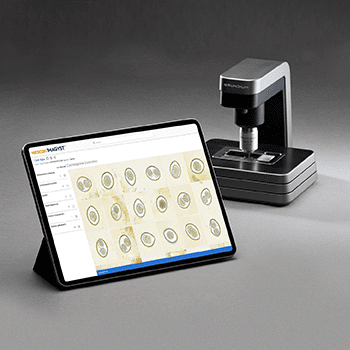Written by Dr Elle Burton-Bradley, Veterinarian, The Village Vet
When your pet is unwell, waiting for results can mean additional stress. Our pets are unable to tell us what is wrong, so veterinarians rely on thorough physical examinations and diagnostic testing when treating sick patients.
In this blog, Dr Elle demystifies clinical pathology, breaking it down into blood, urine and faecal testing and explains the use of cytology and laboratory procedures.
In-house Diagnostics at The Village Vet
The Village Vet Clinics Pymble and Killara both offer comprehensive in-house diagnostic testing, including blood, urine, faecal and cytology. Rapid and accurate onsite testing can be vital in emergencies or during anaesthetics. Additionally, regular testing in healthy patients is an important screening tool for early diagnosis of illness, particularly in older pets.
Some of the conditions that can be diagnosed using in-house clinical pathology include:
- Kidney disease
- Liver disease
- Diabetes
- Electrolyte imbalances
- Pancreatitis
- Some cancers
Types of Testing
1/ Blood testing
Your veterinarian will decide the most appropriate tests for your pet, depending on what we are looking for. The Village Vet offer some essential blood tests in-house, for example haematology, biochemistry, electrolytes and thyroid. On site testing has the advantage of results within minutes.
2/ Urine testing
Your veterinarian may ask that you drop off a urine sample for testing to provide valuable information. A urine sample can tell us a lot about what is going on with your pet, including infections, kidney function, and endocrine (hormone) conditions, like diabetes or Cushing’s disease. We offer simple, rapid onsite urine testing that can provide a great starting point for diagnosing these conditions.
Additional laboratory testing may be required if we suspect an infection to help us choose which antibiotic is most appropriate for your pet’s infection. To test for infections, your veterinarian will need a sterile urine sample from your pet. This is a relatively painless procedure, just like getting a blood sample, that is sent to a diagnostic laboratory to look for growth of bacteria.
3/ Faecal testing
Diarrhoea, or soft stools, is a common presenting problem we see at The Village Vet. While it may seem simple, there are a multitude of causes for diarrhoea, and not all of them are caused by primary gastrointestinal disease. If your pet has soft stools, your veterinarian will ask you a lot of questions to gather information about the most likely causes. In some cases, faecal testing is recommended to test for gastrointestinal pathogens like protozoa, worms, bacteria or viruses. Your veterinarian may send you home with a faecal jar and gloves to collect a sample.
If your pet with diarrhoea is unwell, your veterinarian may recommend blood testing to evaluate if there are other concerns that need to be addressed, like dehydration, organ disease or hormone conditions.
Pathology Testing Equipment
Cytology
One of the most exciting recent upgrades for The Village Vet practices is the addition of in-house cytology testing. Each clinic has an inhouse Imagyst machine which allows rapid digital transfer of high-resolution cytology images to specialised clinical pathologists for evaluation. This includes blood smears, lump samples and faecal testing. For more information about lumps and bumps in your pets, see our recent blog post here.
If you would like to know more about how the Imagyst equipment works, read through our press release here.

Laboratory testing
In-house testing can provide us with an invaluable first step in the diagnosis of your pet’s condition. If more specialised testing is required, your veterinarian may recommend sending your pet’s sample to a specialist diagnostic laboratory. This can be crucial confirmatory diagnosis of many conditions.
Some conditions require ongoing monitoring to ensure appropriate medications and dosing is provided to your pet.
Summary
If you are worried about an upcoming testing consult for your pet or are unclear as to why your veterinarian requires this testing, our staff are always happy to have a pre-consult talk to you about your concerns.
Source
Dr Elle Burton-Bradley BAnVetBioSci (Hons I) DVM, Veterinarian, The Village Vet


